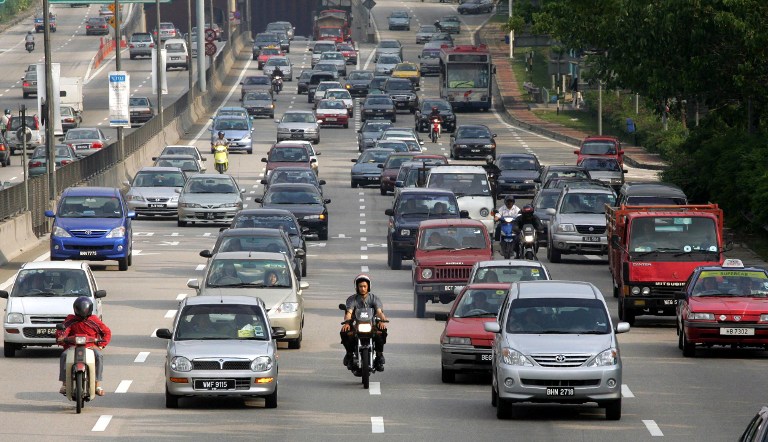KUALA LUMPUR, Dec 2 — Putrajaya was forced to spend an extra RM800 million to build the East Coast Highway largely due to delays by the Public Works’ Department (JKR)’s contractors, the 2012 Auditor-General’s (A-G) Report revealed today.
According to the audit, JKR had performed poorly in its task to build roads measuring 139.4km in total for the highway’s second phase, with the government department missing both its March 2009 deadline and RM2.09 billion budget.
Other factors that contributed to the higher cost included the hike in building materials’ prices and additional facilities.
“The cost was mainly due to the increase of construction materials that caused the tender prices for the re-tendering of a few packages to rise drastically. Other factors that contributed to the cost increase is the additional payment for land acquisition, increase of design costs and security, the construction of toll plazas and additional components,” said the latest edition of the report, which was tabled in Parliament today.
The six-month audit, which began in June last year, traced JKR’s progress from when it awarded 16 packages through open tender to 12 Bumiputera contractors for roads measuring a total of 120km.
In tracing the events leading to Putrajaya’s spending of an extra RM800 million, the report said nine of the contractors missed their deadlines, leading to extension of contracts of between eight to 18 months, with the government forced to fork out RM31.87 million in variation of prices.
But further delays by the same nine contractors led to a mutual termination of contract, with JKR tendering the packages again.
The slow retendering process, which concluded between 11 to 19 months from the date of the contracts’ termination, then further delayed JKR’s project.
Some of the construction sites were also damaged during the wait for new contractors to step in, with high additional costs needed to repair these sites, the report revealed.
In its defence, JKR also said that it faced delays in getting approval from the Ministry of Works for retendering and the issuing of letters to accept the contractors’ tenders.
“Besides that, financial constraints faced by the KKR (Ministry of Works) where it had to get confirmation of allocation from the Ministry of Finance before carrying out the re-tendering process caused the delay of between 11 to 19 months,” JKR said in a June 14, 2013 response to the Auditor-General.
The report compared JKR’s performance against that of the Malaysian Highway Authority (LLM), which was responsible for building roads stretching 80km at RM1.4 billion for the same highway.
Although JKR’s costs per kilometre were initially cheaper than LLM, the audit report now expects JKR’s spending to exceed the latter’s.
“From the comparison of JKR and LLM’s costs based on the initial tender price, the cost for the package managed by JKR is cheaper at RM11.33 million as compared to LLM’s RM18.68 million per kilometre.
“But as of April 2013, as a result of the increase in the costs of construction materials and JKR’s delay in completing the project, the cost per kilometre is expected to increase to RM17.68 million as compared to LLM’s RM17.64 million,” the Auditor-General report said.
In its same June 14 response, JKR said that it estimated its total cost to be RM2.48 billion with its rest areas and tolls plazas containing more facilities - including carparks, public toilets, suraus (prayer rooms) and landscaping works - that were not part of LLM’s projects.
According to the Ministry of Works’ October 1, 2013 response to the Auditor-General, LLM has fully completed its project on November 30 last year.
The ministry said JKR had completed nine of the 16 packages, or 73.21 per cent of its project, with total costs standing at RM2.48 billion.
According to the report, JKR has by July 2013 spent RM2.028 billion out of RM2.798 billion in funds that was approved for its use, while LLM had by June this year spent RM1.382 billion out of its RM1.4 billion allocation.
The auditor recommended that the government appoint qualified contractors in the future, as well as review the concept of building highways by breaking it down to small and short stretches of roads.



















